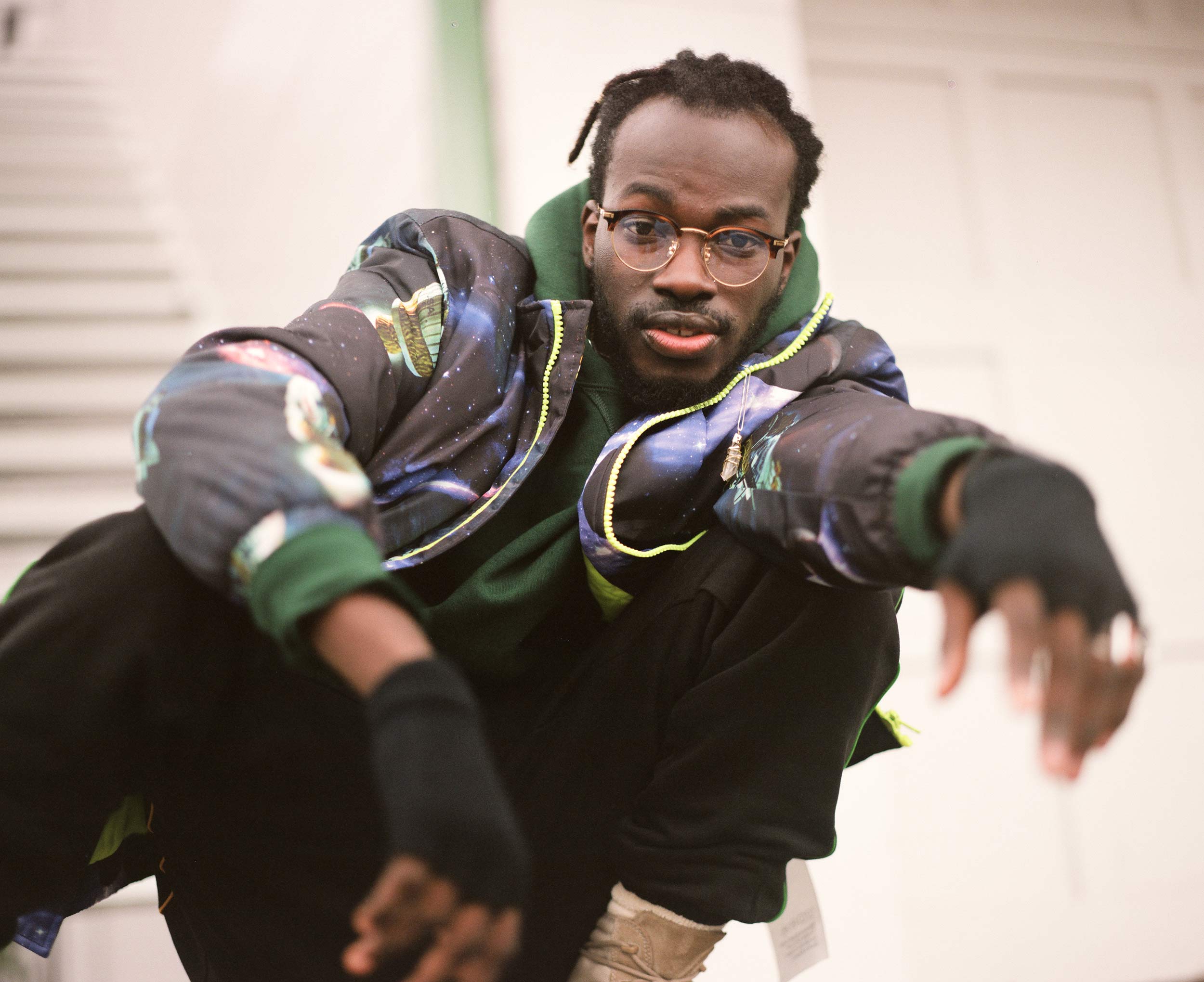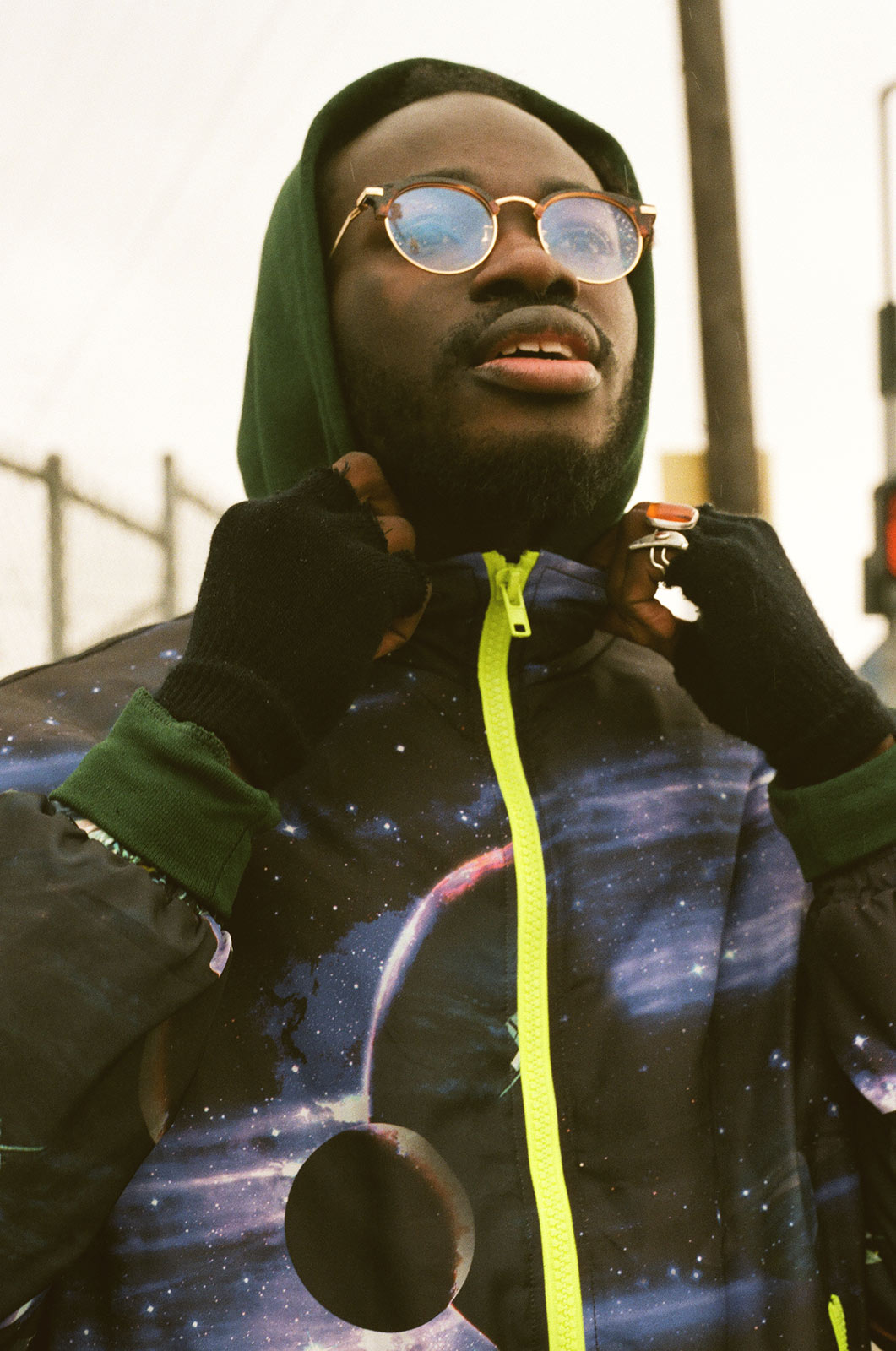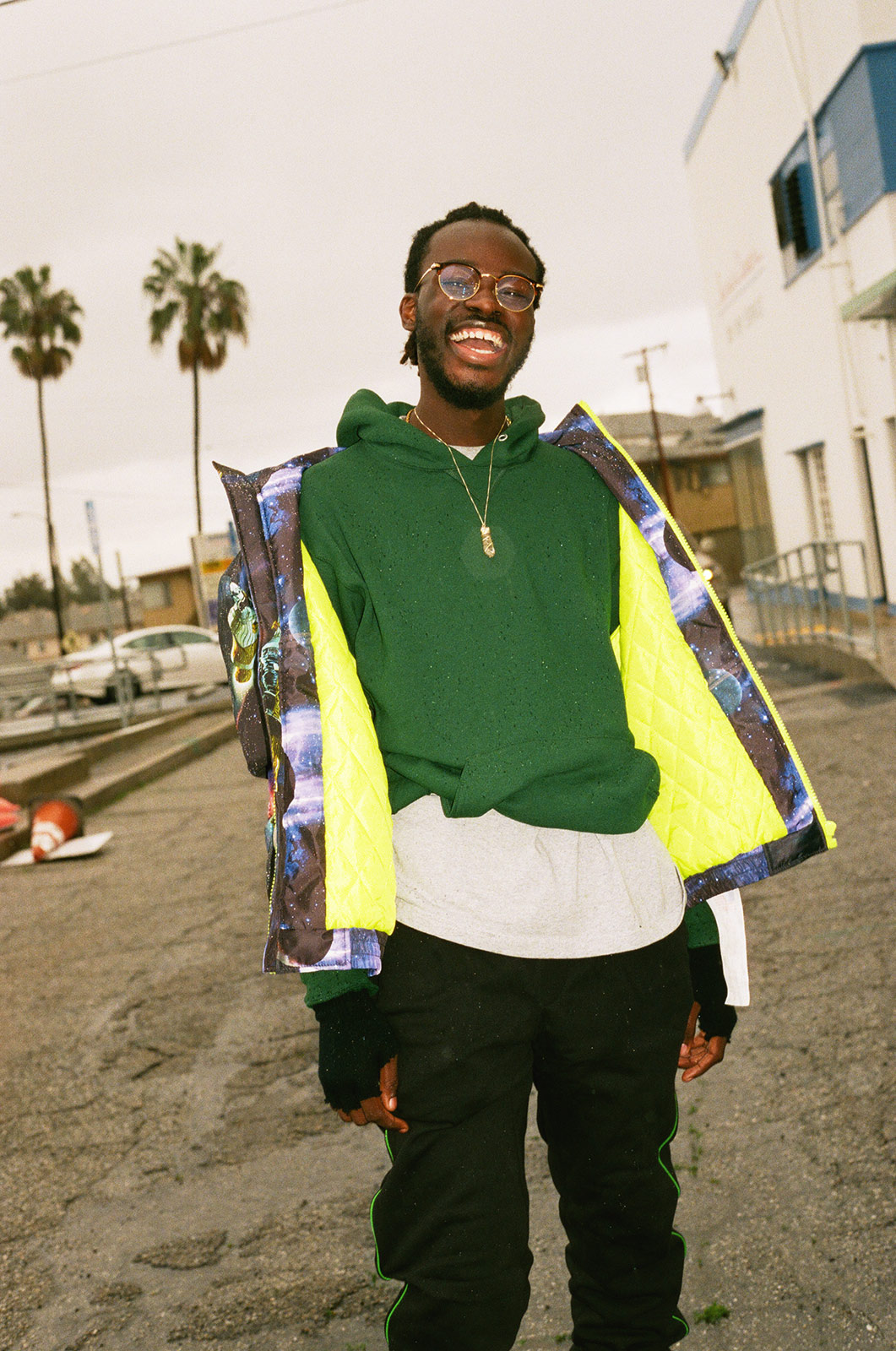The 21 year-old who has already created work for giants such as Instagram and Uber speaks on exposing the youth to new technology, and why we need to dismantle the white middle-class bias in tech.
“Where the world is going and with the digital revolution—everything is going to be an embodiment of tech in some way,” says Iddris Sandu, 21-year-old tech architect. Iddris first learned the languages of coding when he was 13 years old, camping out for a full year in his hometown library. His depth of knowledge was noticed by an employee of one of the largest technology companies in the world, who offered him an internship at Google that same year. In highschool, Sandu built a mobile software program which led him to win the honorary Presidential Scholars Award from Barack Obama. At 18, he sold an algorithm to Instagram and was consulting for Snapchat, then moved to Uber to create the Autonomous Collision Detection Interface for their autonomous vehicle program.
Sandu continued to look for more substance in his work. In Silicon Valley, he explains, everyone knows what augmented reality is. Sandu actively works to expose this technology to different communities, and did so successfully with rapper Nipsey Hussle in 2017, creating a ‘smart store’ in which combined technology, fashion, and music into an experience most had never seen before. This may be a simple idea in Silicon Valley, but it was a revolutionary and inspiring one outside it. Sandu and the smart store got the attention of major figures such as Kanye West, Jay Z, and Jaden Smith, who are now working with him to bring technology to young communities of color. Document’s Sam Weir spoke to Sandu about the intersection of fashion and technology, exposing the youth to new tools, and how spirituality will save us from the augmented reality future.
Above The Fold

Sam Contis Studies Male Seclusion

Slava Mogutin: “I Transgress, Therefore I Am”

The Present Past: Backstage New York Fashion Week Men’s Spring/Summer 2018

Pierre Bergé Has Died At 86

Falls the Shadow: Maria Grazia Chiuri Designs for Works & Process

An Olfactory Memory Inspires Jason Wu’s First Fragrance

Brave New Wonders: A Preview of the Inaugural Edition of “Close”

Georgia Hilmer’s Fashion Month, Part One

Modelogue: Georgia Hilmer’s Fashion Month, Part Two

Surf League by Thom Browne

Nick Hornby: Grand Narratives and Little Anecdotes

The New Helmut

Designer Turned Artist Jean-Charles de Castelbajac is the Pope of Pop

Splendid Reverie: Backstage Paris Haute Couture Fall/Winter 2017

Tom Burr Cultivates Space at Marcel Breuer’s Pirelli Tire Building

Ludovic de Saint Sernin Debuts Eponymous Collection in Paris

Peaceful Sedition: Backstage Paris Fashion Week Men’s Spring/Summer 2018
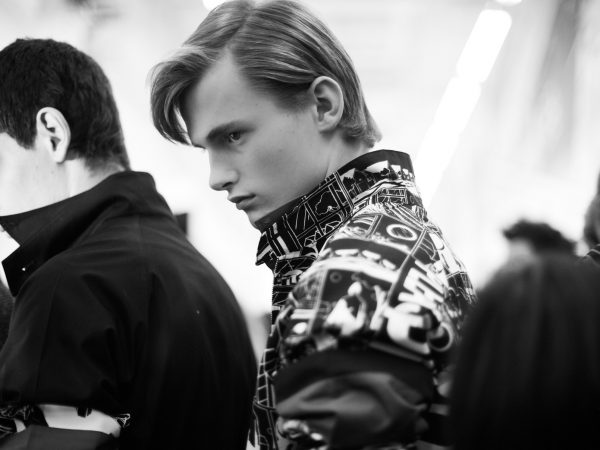
Ephemeral Relief: Backstage Milan Fashion Week Men’s Spring/Summer 2018

Olivier Saillard Challenges the Concept of a Museum

“Not Yours”: A New Film by Document and Diane Russo

Introducing: Kozaburo, 2017 LVMH Prize Finalist

Introducing: Marine Serre, 2017 LVMH Prize Finalist

Conscious Skin

Escapism Revived: Backstage London Fashion Week Men’s Spring/Summer 2018

Introducing: Cecilie Bahnsen, 2017 LVMH Prize Finalist

Introducing: Ambush, 2017 LVMH Prize Finalist

New Artifacts

Introducing: Nabil Nayal, 2017 LVMH Prize Finalist

Bringing the House Down

Introducing: Molly Goddard, 2017 LVMH Prize Finalist

Introducing: Atlein, 2017 LVMH Prize Finalist

Introducing: Jahnkoy, 2017 LVMH Prize Finalist

LVMH’s Final Eight

Escaping Reality: A Tour Through the 57th Venice Biennale with Patrik Ervell

Adorned and Subverted: Backstage MB Fashion Week Tbilisi Autumn/Winter 2017

The Geometry of Sound

Klaus Biesenbach Uncovers Papo Colo’s Artistic Legacy in Puerto Rico’s Rainforest

Westward Bound: Backstage Dior Resort 2018

Artist Francesco Vezzoli Uncovers the Radical Images of Lisetta Carmi with MoMA’s Roxana Marcoci

A Weekend in Berlin

Centered Rhyme by Elaine Lustig Cohen and Hermès

How to Proceed: “fashion after Fashion”

Robin Broadbent’s Inanimate Portraits

“Speak Easy”

Revelations of Truth

Re-Realizing the American Dream

Tomihiro Kono’s Hair Sculpting Process

The Art of Craft in the 21st Century

Strength and Rebellion: Backstage Seoul Fashion Week Autumn/Winter 2017

Decorative Growth
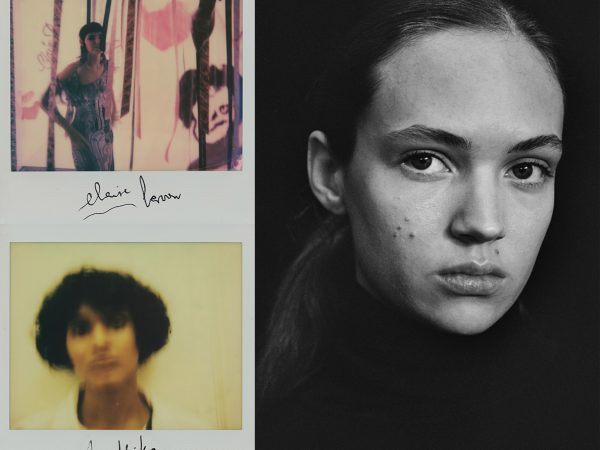
The Faces of London

Document Turns Five
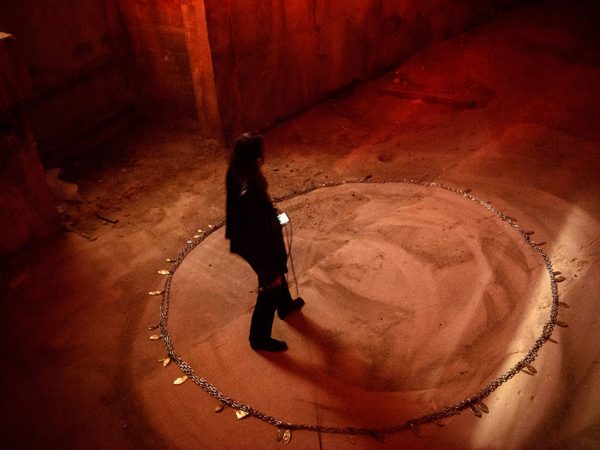
Synthesized Chaos: “Scholomance” by Nico Vascellari

A Whole New World for Janette Beckman

New Ceremony: Backstage Paris Fashion Week Autumn/Winter 2017
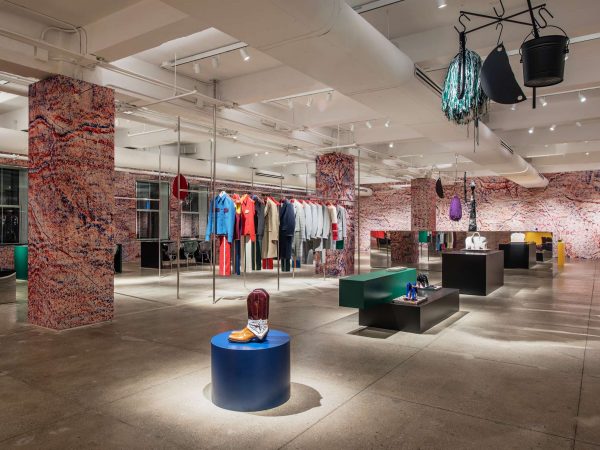
New Perspectives on an American Classic

Realized Attraction: Backstage Milan Fashion Week Autumn/Winter 2017

Dematerialization: “Escape Attempts” at Shulamit Nazarian

“XOXO” by Jesse Mockrin

Brilliant Light: Backstage London Fashion Week Autumn/Winter 2017

The Form Challenged: Backstage New York Fashion Week Autumn/Winter 2017

Art for Tomorrow: Istanbul’74 Crafts Postcards for Project Lift

Inspiration & Progress

Paskal’s Theory of Design

On the Road

In Taiwan, American Designer Daniel DuGoff Finds Revelation

The Kit To Fixing Fashion
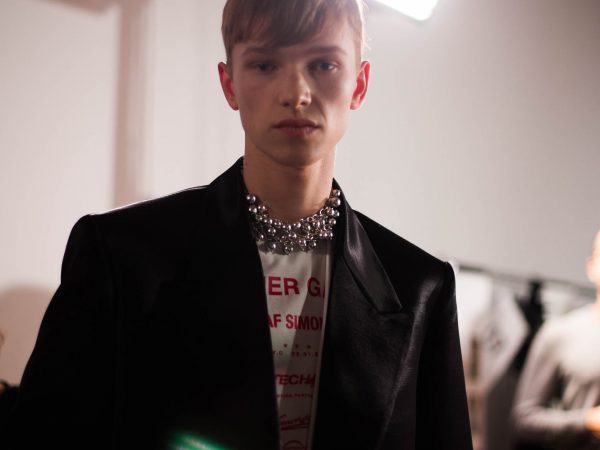
The Game Has Changed: Backstage New York Fashion Week Men’s Autumn/Winter 2017

Class is in Session: Andres Serrano at The School

Forma Originale: Burberry Previews February 2017

“Theoria”

Wearing Wanderlust: Waris Ahluwalia x The Kooples

Approaching Splendor: Backstage Paris Haute Couture Spring/Summer 2017

In Florence, History Returns Onstage

An Island Aesthetic: Loewe Travels to Ibiza

Wilfried Lantoine Takes His Collection to the Dancefloor

A Return To Form: Backstage New York Fashion Week Spring/Summer 2018

20 Years of Jeremy Scott

Offline in Cuba

Distortion of the Everyday at Faustine Steinmetz

Archetypes Redefined: Backstage London Fashion Week Spring/Summer 2018

Spring/Summer 2018 Through the Lens of Designer Erdem Moralıoğlu

A Week of Icons: Backstage Milan Fashion Week Spring/Summer 2018

Toasting the New Edition of Document

Embodying Rick Owens

Prada Channels the Wonder Women Illustrators of the 1940s
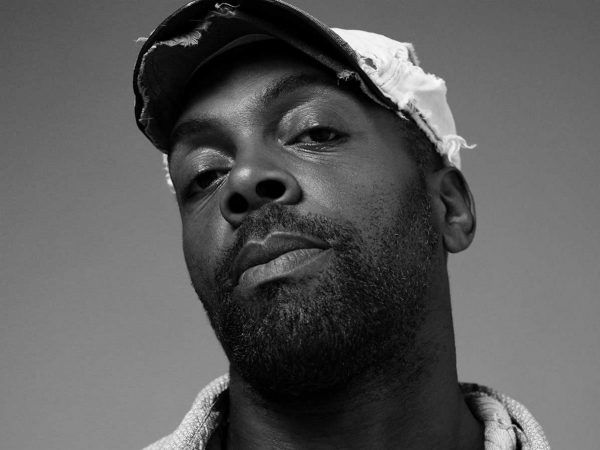
Andre Walker’s Collection 30 Years in the Making

Fallen From Grace, An Exclusive Look at Item Idem’s “NUII”

Breaking the System: Backstage Paris Fashion Week Men’s Autumn/Winter 2017

A Modern Manufactory at Mykita Studio

A Wanted Gleam: Backstage Milan Fashion Week Men’s Autumn/Winter 2017

Fashion’s Next, Cottweiler and Gabriela Hearst Take International Woolmark Prize

Beauty in Disorder: Backstage London Fashion Week Men’s Autumn/Winter 2017

“Dior by Mats Gustafson”

Prada’s Power

George Michael’s Epochal Supermodel Lip Sync

The Search for the Spirit of Miss General Idea

A Trace of the Real

Wear and Sniff

Underwater, Doug Aitken Returns to the Real
Sam Weir—I know you work in the fashion world a lot. I find the intersection of fashion and technology interesting, and the future of it exciting to watch. How do you approach that intersection?
Iddris Sandu—For me, it’s like I apply a Spike Jonze outlook. Basically, in his films and videos, the technology almost disappears and becomes one. I do that with my integration of technology and fashion—making it work in a way that is seamless and not forced. Something that encourages the user to simply do something, not to feel forced, to do it but because it seems right. For example, opening a door—it doesn’t have to say push on it for us to know to push. These things are innate to us, so creating that same level of seamlessness with fashion and technology integration is my approach.
Sam—In the past, many have attempted to combine fashion with new innovations, but it can feel a bit gimmicky.
Iddris—What makes products gimmicky is not the application of the technology but more so how its applied, and usually it is applied without authentic storytelling. Look at what I did with Nipsey Hussle and augmented reality. It was the way that we were able to create authentic storytelling, and basically release an album through these pieces of clothing, that made it different. The culture already had a strong sense of connection with it. I took that strong sense of connection with the authentic story and then used technology as a layer on top of it. That’s why it worked so well and Diddy and Jay-Z got hip to it.
Sam—What piece of technology in that store are you most proud, of or see the most potential with?
Iddris—My main goal is encouraging more kids to get away from the idea of just building apps and core infrastructures like cloud services. However, before I can do that in an area where the minority voices are diminished on the micro, I need to sort of spoon feed the culture to impact on the macro. Creating the smart store experience—my main goal was to shift the mindset. The hardest thing you can do is shift the mindset. The fact that after I did the smart store I visibly saw it, was very fulfilling.
Sam—I am the same age as you [21], so I really love that you actively call on our generation to step up and be part of the conversation. You do have a seat at the table, you’ve worked at all these companies. How do we demand room for others to follow? Exposing them to the right sort of information, and allowing them to have the ability to dream is so important, but how?
Iddris—I had tweeted the other day, ‘The youth are now being burdened to provide solutions to all the problems that they were not responsible to creating in the first place.’ We are born into a broken world, we have to be the clean up crew before we start innovating. It starts with exposure. We must expose our youth instead of educating them. If I’m being taught something, what is the chance that it will be relevant within the next three months, even? The average shelf life of technology is less than one month now. I would much rather expose you to the information I have, and you choose what you want to do with that, then you spread it. In doing so, we can innovate, spread information at a higher rate, and prepare our youth to make changes in this world.
Sam—Do you think these tech companies are finally realizing the youth are a major part of their consumer base and where they make their money? Take how Rihanna posted about Snapchat and their stock took a nosedive.
Iddris—I talked about this in my Ted Talk but there is this idea that the culture is supreme. These tech companies want to act like the culture needs them but in reality they are nothing without the culture. Whether you want to use that as pop culture, Afro-American culture, Latino culture, Asian culture, it is all one and they just need to be more accountable. The people that need to be on the board of directors are the people influencing the culture. They shouldn’t have someone 40 or 50 years old saying, ‘I know what the youth wants.’ There shouldn’t be any of that. There should be people who are actively influencing the culture, out here sitting down with those people, and saying, ‘Hey, this is what this is what our generation is into. This is how we can market and improve things.’
Sam—Technology can be frightening. The idea that we are all going to be living in this fake reality, because the real one is too sad, seems very possible. Is this something we should be afraid of?
Iddris—I never operate with fear, but I do operate with caution. These algorithms are being written with bias, usually by white male figures that are not only oppressive towards people of color but also to women. People do not even understand the importance of women being in technology and being programmers and being in those meetings. We are creating all these algorithms and we talk about AI, and even if AI can make its own mind, who wrote those algorithms? Steve Jobs is one of my biggest inspirations but Apple was created for the middle class white American family. It wasn’t really created for everyone to access it. Any platform developed by an un-diverse team from the ground up automatically renders it biased. So when I’m even talking about creating this operating system, it’s not to say, ‘Hey, this is a black-owned operating system.’ No, it is a people-owned operating system, and we are not going to make the same mistakes as those before us.
Sam—I feel like the human connection will always bring us back to reality. But, I don’t know, maybe that is something [big tech] can replicate…
Iddris—I completely agree with you on that. It will all come down to spirituality. That is one thing you cannot irradiate or remove. Without a soul connection, even if we create this killer AI platform, it won’t be able to be empathetic. It is a machine, not a human being. I agree with you, I do think it is going to come down to that at the end of the day. I talk to my friends about that, and I do want to make sure we get the right message out there.
Sam—What is something or someone who really excites you right now?
Iddris—Everything that we are doing and everyone that we are meeting with. Jaden [Smith], and what he is doing with Just Water. Yara Shahidi and everything she is doing with Eighteen x 18, a platform she created to increase voter education and outcome. Noor Tagouri does a lot of motivational and public speaking. It is exciting, the fact that a lot of friends I am working with have this common alignment in values. I have been exposing my friends to this idea, ‘Operating for purpose, instead of operating for profit and nonprofit.’ We simply operate for purpose. In terms of people that excite me, [it’s] Noor, Jaden Smith, Yara Shahidi—the youth that are out here and killing the game in terms of youth impact.


